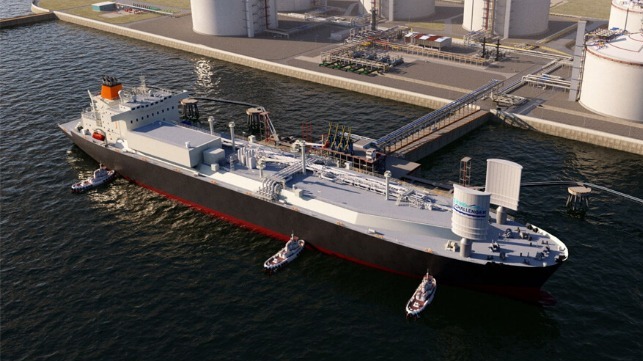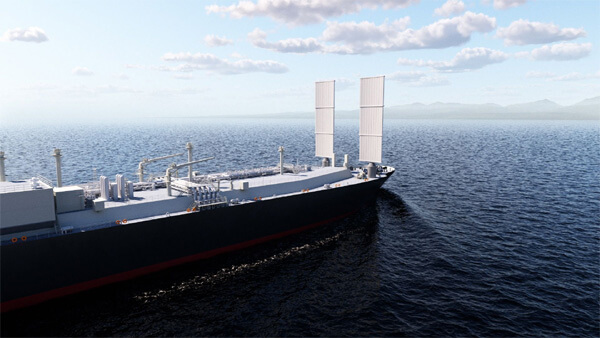MOL and Hanwha Design First LNG Carrier with Wind-Assisted Propulsion

Japan’s Mitsui O.S.K. Lines (MOL) presented the first approved design concept for an LNG carrier with a wind-assisted propulsion system. The plan looks to expand the installation of the rigid sail technology known as Wind Challenger from dry bulk carriers to gas carriers as part of MOL’s corporate strategy for decarbonization.
MOL working with Oshima Shipyard completed the development of the rigid sail which was deployed for the first time on a newbuild dry bulk carrier in 2022. The sail is made of rigid fiber-reinforced plastic and telescope with three panels. It is placed at the bow of the vessel and has shown positive results in lowering fuel consumption. The corporate plan calls for having 25 vessels with the Wind Challenger by 2030 and 80 by 2035.
Working with South Korea’s Hanwha Ocean, MOL developed the designs to add the Wind Challenger to a standard size 174,000 cubic meter LNG carrier. The plan calls for adding two of the rigid sails to a 938-foot (286-meter) newbuild LNG carrier from Hanwha Ocean. The sails would have a maximum height of 160 feet (49 meters) and be about 49 feet (15 meters) wide.

The gas carrier would have two rigid sails versus a single installation on the dry bulk carriers (MOL)
MOL explains several challenges that needed to be explored with the design. Working with GTT, the world’s leading designer of LNG tanks, GTT confirmed that the structure safety of the tanks is sufficiently ensured, even when considering the stresses imposed by the sails.

that matters most
Get the latest maritime news delivered to your inbox daily.
MOL, Hanwha Ocean, and ClassNK conducted a Risk assessment that comprehensively evaluated factors such as the placement of the sails, their impact on visibility, emergency operation procedures, and other safety measures. Based on the analysis, ClassNK (Nippon Kaiji Kyokai) awarded an approval in principle (AiP) for the design of a membrane LNG Carrier installing Wind Challenger.
The detailed design work MOL reports is currently underway for the new LNG carrier ordered it ordered from Hanwha Ocean. The aim is to incorporate the wind-assisted propulsion technology.
